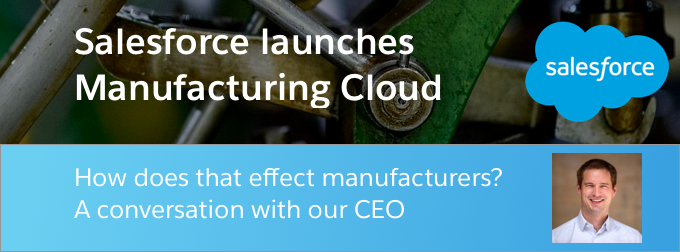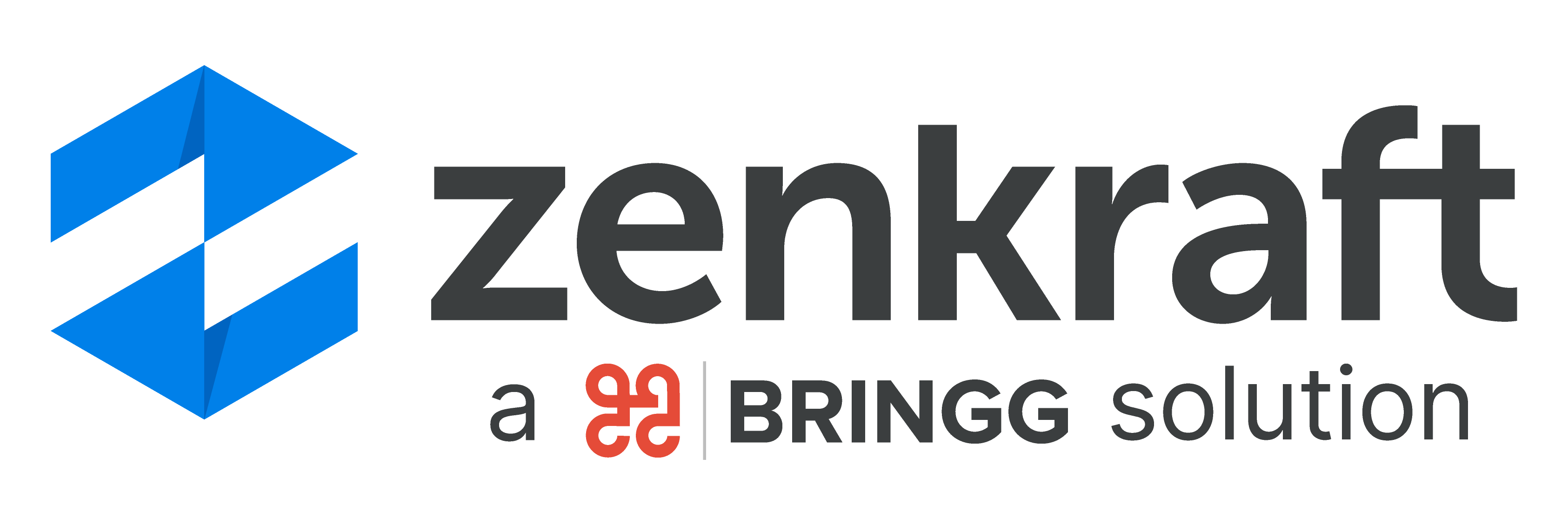
Salesforce recently made a splash by announcing the launch of two new clouds, Manufacturing Cloud and Consumer Goods Cloud.
We recently sat down with our CEO, James Lumb, to discuss Salesforce Manufacturing Cloud.
What Manufacturing Cloud feature are you most excited about?
James: “ If I had to choose one feature of Manufacturing Cloud that I’m most excited about, it would be forecasting with formula builder. I believe this will result in more accurate forecasts that take into account the latest projected demand, current orders, and deals that are in the final stages of being closed. This feature will make it easier for the entire organization to actively participate in forecasts, instead of forecasting in silos. “
How will Manufacturing Cloud help better align sales, operation, and product teams?
James: “I see Manufacturing Cloud as a perfect extension of Salesforce’s mission to provide businesses with a 360° customer view. The Zenkraft platform builds upon that 360° view even further by showing shipping, order, and return information alongside customer information. Ultimately, it’s about giving employees complete visibility of ALL data related to a customer. “
What effect does this release have on Zenkraft’s product offerings?
James: “ It touches every part of our product offering. Our area of expertise covers 4 areas: order fulfillment, real-time quoting, returns & replacements, and tracking.The addition of Manufacturing Cloud will help us streamline these processes for companies in this vertical.”
What functionality does Zenkraft bring into manufacturing cloud?
James: "Shipping is at the core of our business and manufacturers are constantly shipping. Whether they are shipping for replenishment, fulfillment, or warranty repair, we can help manufacturers organize these shipments and keep track of the associated costs. This functionality can be especially useful for companies who are doing maintenance in the field. Zenkraft can provide field-technicians with real-time information on the delivery status of parts and tools needed to perform maintenance, which increases the efficiency. “
According to a report by McKinsey, the manufacturing industry is only between 30% and 33% digitally mature. This is much lower than in other industries. How do you anticipate manufacturing cloud helping the industry close this gap?
James: “ It will help manufacturers close this gap by bringing all their data into one place. Information can be hard to access, especially in large organizations. Data can be spread across different ERP systems or even excel documents. Having all this information in one place will help management teams make decisions based on the full picture.
When you are dealing with something as important as forecasting how much product to produce you need this data at your disposal. “
Have you seen any specific sectors of the manufacturing industry that are increasing digitalization?
James: “ I can think of two particular sectors off the top of my head: the CBD vertical and end-to-end ecommerce companies (DTC manufacturers).”
Do you anticipate the introduction of Manufacturing Cloud facilitating the adoption of other Salesforce Clouds in the manufacturing industry?
James: “100%. I see manufacturing cloud as a product that will pull a lot of manufacturers into Salesforce. Then as they see the impact of this cloud on their organization they will begin to implement some of the other clouds. Manufacturers are typically very good at manufacturing product, but they aren’t necessarily great at sales and marketing. Adding Marketing Cloud or Sales Cloud will help these companies become more proficient in those areas. “
How does expanding into this new vertical help Salesforce compete with SAP?
James: “Salesforce and SAP is an interesting battle to keep tabs on. Both companies have made huge acquisitions in order to deliver an even higher level product for their customers. This sort of innovation-driving competition is only going to benefit users of both products. But I think Salesforce really knocked it out of the park by bringing new and existing business data into the same cloud. It positions the company to go after large manufacturers.”


